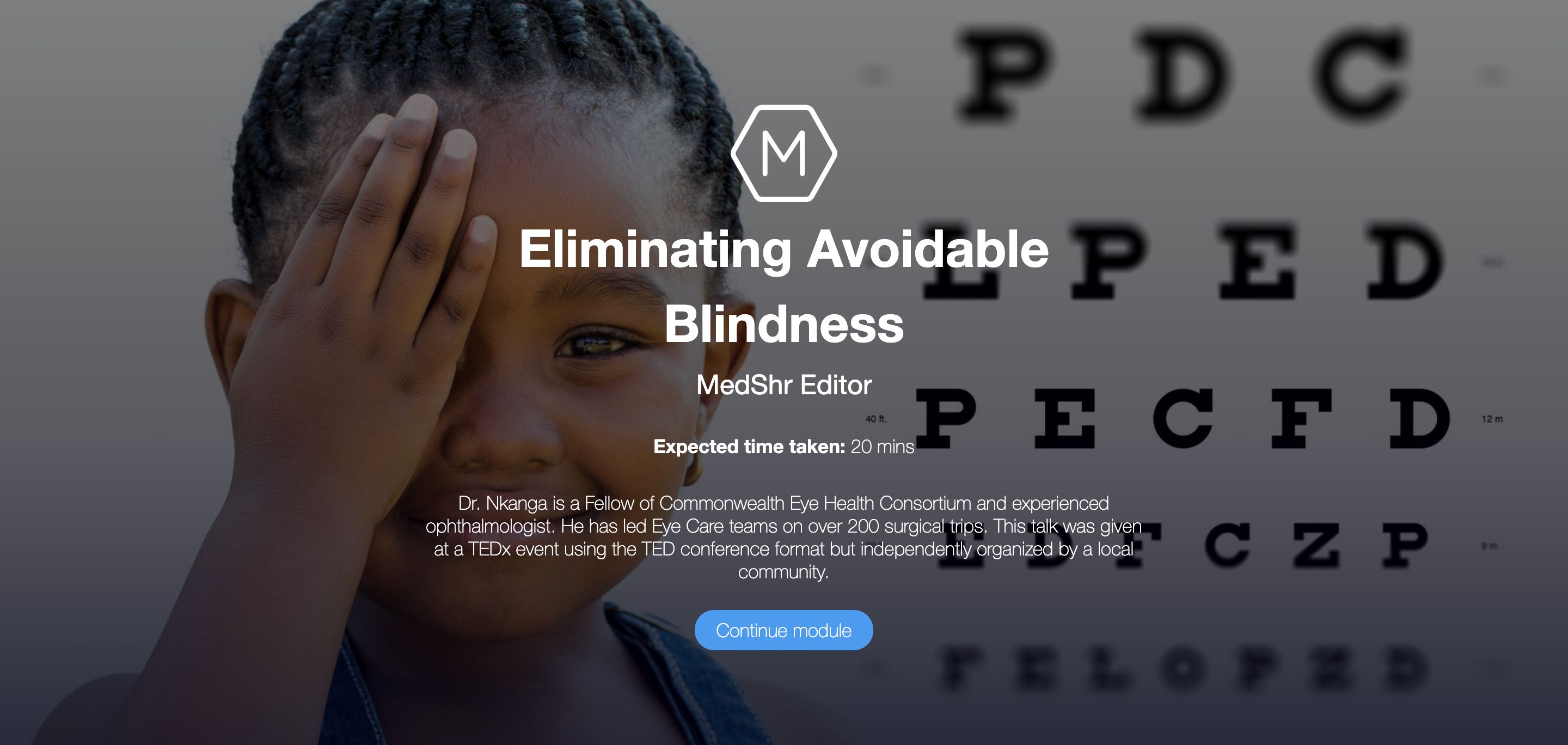World Sight Day

World Sight Day 2021: Connecting healthcare professionals globally to share experiences and learn in a multidisciplinary education network
World Sight Day will take place on October 14, 2021 with the theme: Love Your Eyes.
"Globally, at least 2.2 billion people have a near or distance vision impairment. In at least 1 billion – or almost half – of these cases, vision impairment could have been prevented or has yet to be addressed" WHO News Room
At MedShr we are building a community of health care professionals in developing nations with an interest in ophthalmology. We know there are many reasons why patients with vision impairment are not being identified and treated in developing nations and we want to offer a platform for health care professionals to share their experiences of managing such patients to learn from each other how best to deliver eye care in their region.
We know vision impairment can have devastating effects for young children as it can delay development in other domains such as motor, language and cognitive development. The lifelong impacts of such delays can mean the quality of life achievable in adulthood is significantly reduced with a negative impact on social integration into society.
The Lancet Global Health Commission on Global Eye Health
This year, the Lancet released a Global Health Commission on Global Eye Health. In 2020 an estimated 510 million people had uncorrected near vision impairment of which 85% of those affected with in low-middle-income countries with women, rural populations and ethnic minorities disproportionately affected.
Uncorrected refractive error and un-operated cataracts are the leading causes of vision impairment and as such are a major focus for eliminating preventible blindness worldwide. The world health organisation member states recently agreed to new targets eye care by 2030. They are a 30% increase in effective coverage of cataract surgery and a 40% increase in effective cover for refractive errors which would require glasses.
In the past 30 years, major infectious causes of preventable blindness such as onchocerciasis and trachoma have been significantly reduced showing how global health initiatives can have an impact. There is still a long way to go and other causes of preventible blindness such as, glaucoma, age-related macular degeneration, diabetic retinopathy, and trauma, should not be overlooked.
Listen to the podcast which accompanies the Commission on Global Eye Health: vision beyond 2020
"In this Commission, we harness lessons learned from over two decades, present the growing evidence for the life-transforming impact of eye care, and provide a thorough understanding of rapid developments in the field. This report was created through a broad consultation involving experts within and outside the eye care sector to help inform governments and other stakeholders about the path forwards for eye health beyond 2020, to further the Sustainable Development Goals (including universal health coverage), and work towards a world without avoidable vision loss."
For free access to the Ophthalmology Global Education Network, doctors and other health professionals are encouraged to sign up here.
MedShr also offers free, fast-tracked, registration for medical schools, hospitals and medical societies. Please contact globalhealth@medshr.net to make arrangements
MedShr Learning hosts a range of medical education modules ranging from conferences, medical videos and mltiple choice questions for you to learn from and test your knowledge. Check out this TedTalk from Dr. Nkanga, an experienced ophthalmologist and Fellow of Commonwealth Eye Health Consortium.

Loading Author...
Sign in or Register to comment